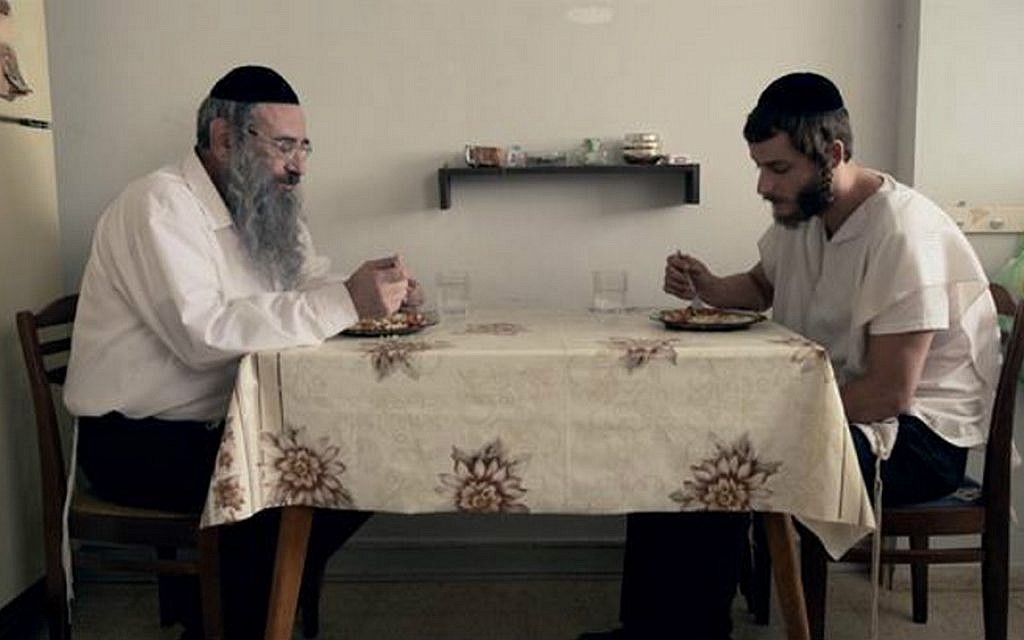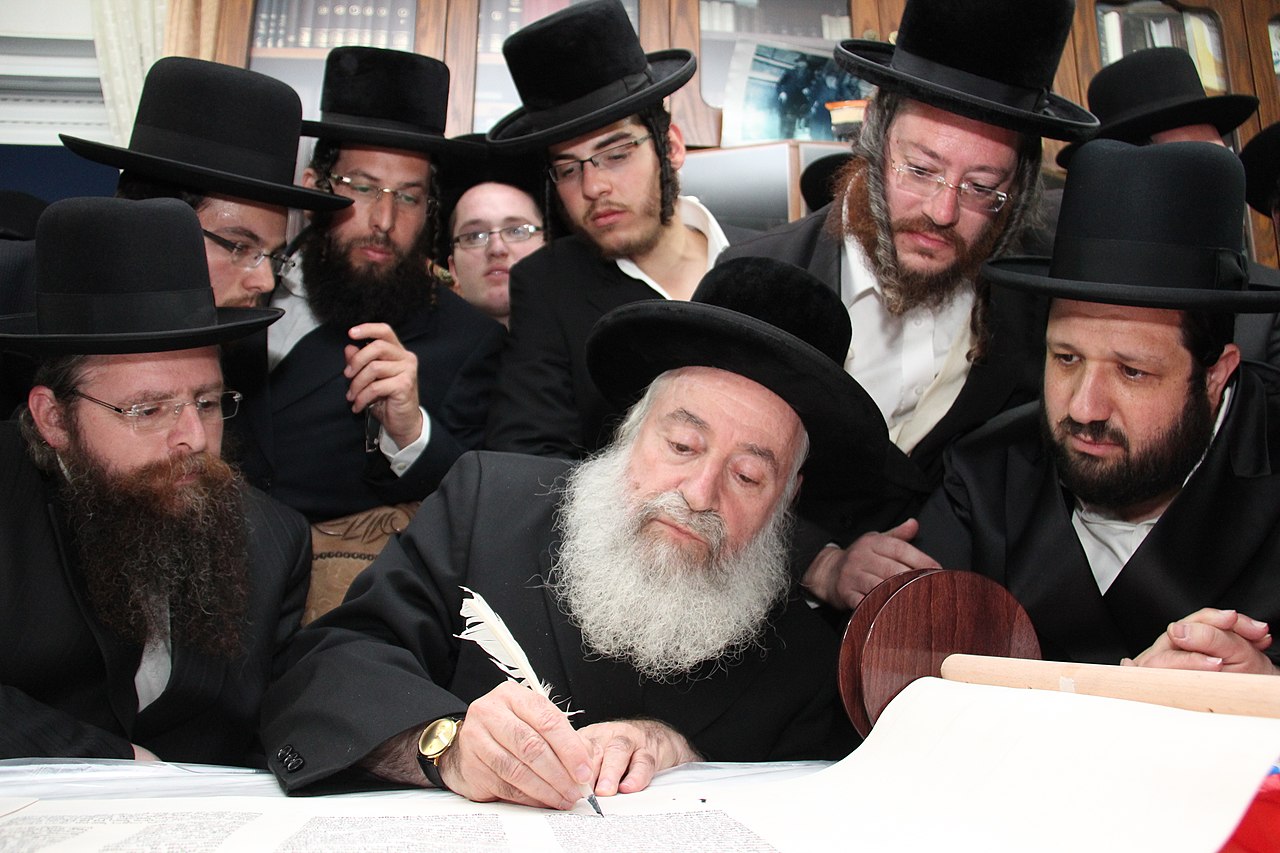Looks like everyone else around town is blogging their thoughts on how to vote this Tuesday, so I don't see why I shouldn't either. Hopefully this logical decision tree will help you make up your mind too!
Let's start with the big questions. In most other democracies in the world, the barometer is, as Bill Clinton put it, "It's the economy, stupid." In Israel, where we face permanent existential threats, this changes to: "It's the security, stupid." Left and Right in Israel are more about your approach to Israel's geopolitical situation. Thus the moribund Kadima, which ran very much a capitalist, free-market economy under Ehud Olmert's tenure, is considered "Left", because of its "dovish" views on security, while Shas is considered "Right", despite its practically socialist economic platform. Or at least, it
was considered Right under Eli Yishai... things look a little different now that Aryeh Deri has successfully staged his coup...
So decision 1 in the tree is this: do you believe that Israel needs to make more concessions to the Palestinians in order to make peace? If your answer is yes, your choice is between Labor, Yesh Atid, Kadima, Tzippi Livni's Movement (aptly named), and Meretz. I won't dwell too much here because frankly they all make me ill. I have some grudging respect for Shelly Yecimovich as a worthy adversary, and Meretz just because they actually do have an ideology. If you're on this side of the political fence, here's where we part ways; I won't presume to advise you anything other than that you please should vote on Wednesday.
So if, like me, you're of the opinion that the Arabs will never agree to any peace deal with Israel that deprives them of the "right" to continue attempting to destroy Israel outright, you're left with several options: Likud-Beiteinu, Bayit Yehudi (Jewish Home), Shas, UTJ (Gimmel) and Otzma L'Yisrael (Strong Israel).
Now some haredi readers might have tagged along till now, thinking, "There are more important things than security - like Torah. It doesn't matter what security platform anyone has; the most important thing is that they are
frumme Yidden who will make sure that the Torah world is well looked after." I think the "Daas Torah" argument was very adeptly handled by
Rav Slifkin - he put it much better than I ever could. I will simply add that I have never forgiven UTJ for selling out the Jews of Gush Katif and voting for Sharon's 2005 Disengagement budget in exchange for a 290 million shekel bribe. And it's not for me to forgive. When they ask for (and receive) forgiveness from those 10,000 Jews for the trauma and suffering they callously caused them, then they can try and convince me that they're the party that represents Torah. Till then, don't even talk to me.
Shas? If you had to poll secular Israelis for which political party turns them off Judaism the most, I reckon Shas would coast home, even before UTJ rounded the final bend. Aside from their socialist economics and the new Leftist inclination under new management - for crying out loud, they have a convicted embezzler at the top, who still shamelessly claims he's the victim of a Sephardophobic conspiracy! You believe the conspiracy theories? Then Shas is for you.
Now we're down to the wire. 3 parties left, all very security minded, all opposed to making stupid concessions to the Arabs that will only further undermine our position. But wait? Didn't Netanyahu, in his last term, do exactly that? Building freezes, outpost evacuations, internationally declared support for the "two state solution"?
My gut wants to punish Netanyahu, and vote for one of the other two right-wing parties. But let's take a step back and consider the implications.
I love Aryeh Eldad and Michael Ben-Ari, just for the fact that they are so proud of their ideological stand. You won't find them zigzagging about conscientious objection or our rights to all of Eretz Yisrael. They are colorful and entertaining - but they are totally irrelevant to the overall political process. Even if they got 10 seats in the Knesset they would be irrelevant, in the same way as the 11-12 Arab MKs are also irrelevant. They will never be included in any coalition, and will never have any effect on government policy. All they can do is make a noise from the sidelines. Not that that noise is without value; it's good to have a fiery opposition, if just to raise public consciousness. But you can get better bang for your buck as far as voting is concerned.
Naftali Bennett and Bayit Yehudi are really the phenomenon of the election. From a combined 5 seats in the outgoing Knesset (BY plus half the National Union), they are looking at somewhere between double and triple that in the coming election. I have tremendous respect for them, they have a strong, high-quality list of candidates (special mention for Jeremy Gimpel), and they are very likely to form part of the new coalition, which means they can influence government policy. Or can they?
Well, not really, when it comes down to the wire. If you recall, before the Disengagement, Sharon had a coalition including Mafdal (BY's predecessor). When Mafdal voted against Disengagement, Sharon simply fired them and re-formed his coalition with the Left.
The fact is, BY may be part of the coalition, but they will always be dispensable if they ever get too uppity. So Netanyahu will throw them a few bones to keep them happy, but they do not have critical leverage.
Now let's look again at the Likud-Beiteinu list. Back in 2005, when the Likud split over the Disengagement, there was only a handful of Likud MKs who stood strong and voted against the Disengagement the whole way. Today, things look very different. In the top 21 of the Likud list, only 3 candidates have declared support for the two-state solution - Netanyahu himself, Hanegbi and Shama-Hacohen. The rest of the list is filled with people of the calibre of Feiglin, Danon, Hotovely, Levin, Elkin, etc. Aside from them, Saar, Erdan, Chaim Katz and Gamliel were all among the "Likud rebels" who voted against disengagement. Also, very significantly for those of us in Beit Shemesh, Keti Sheetrit is in the long-shot position 38. It would be
really good for our city to get our first ever MK. The Yisrael Beiteinu part is also very ideologically strong, including people like Yair Shamir and Uzi Landau. The Likud of today
cannot do another disengagement - because the prime minister would literally be left on his own. Bayit Yehudi is dispensible, but the Likud is not. The prime minister has to caucus with these people every week, and he cannot do anything without having his own team on board.
And it's not even the case that a vote for Likud is equivalent to a vote for Bayit Yehudi. The smaller the Likud is, the less stable the coalition will be, and the more likely Netanyahu will have to rely on the Left to build his coalition. Let's take a hypothetical best-case scenario where Likud-Beiteinu gets 61 seats by itself, and doesn't need any other party to join the coalition. In such a case, there would be no need to buy off smaller, sectoral-interest parties, no ministers-without-portfolio, no need for
pork mutton-barrel politics. Imagine that! You could have a government that is focused only on things that matter, rather than having to keep soothing the egos and budget needs of disgruntled nochschleppers.
The opposite scenario is too horrible for words. Imagine Likud with 30 seats, BY with 15, Labor with 19, Yesh Atid with 12, Shas with 11, UTJ with 6, Livni with anything. Now Likud has to pull in at least two other parties just to break 61. In order to neutralize the threat of any one party being able to bring down the coalition, you would need 61
plus the number of seats of the next biggest coalition partner. We'll need so many joke ministries it's frightening: a "Minister for Administrative Affairs", a "Deputy Minister in the Prime Minister's Office" and 3 Ministers Without Portfolio. Every one of these coalition partners is going to be constantly whining about the amount of budget they get allocated to their pet cause, and since no two of them will be able to agree on anything of significance, it'll be another 4 years of being stuck in the same rut. Sound familiar? Yes, that's exactly the scenario we have today.
When you vote for a splinter party, you are voting for bloated government, inefficiency and corruption.
So I'm voting Likud. They have governed this country excellently for the last four years, and they will do even better, the more they are free of the whines and demands of coalition partners. The Likud has a party list I'm proud of, and I think they are the best people on offer to be running the government on Israel.
I hope you will do the same!





















